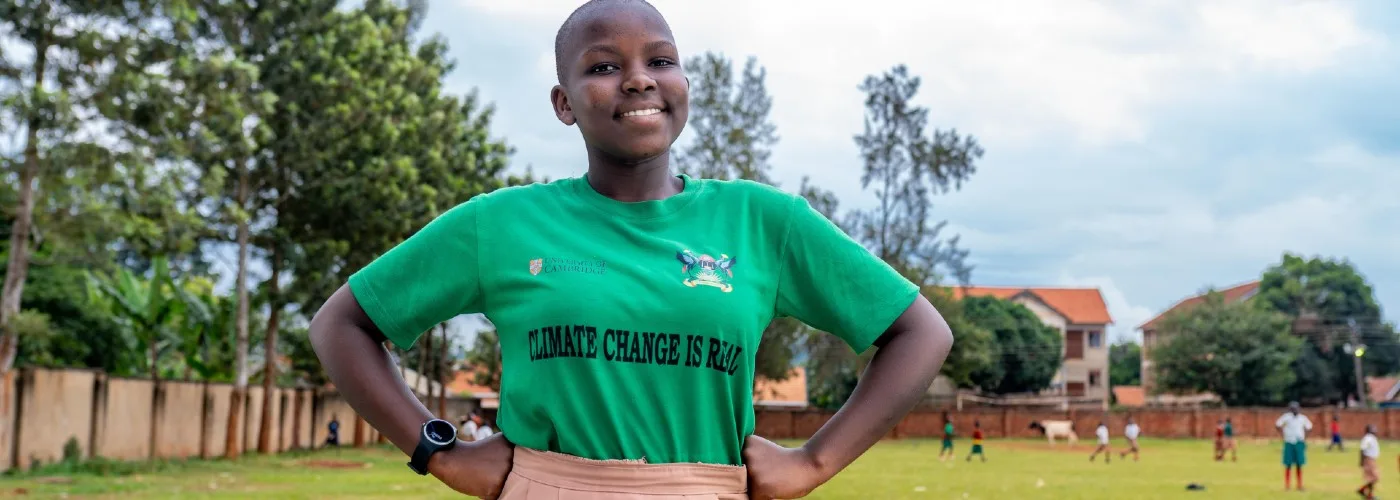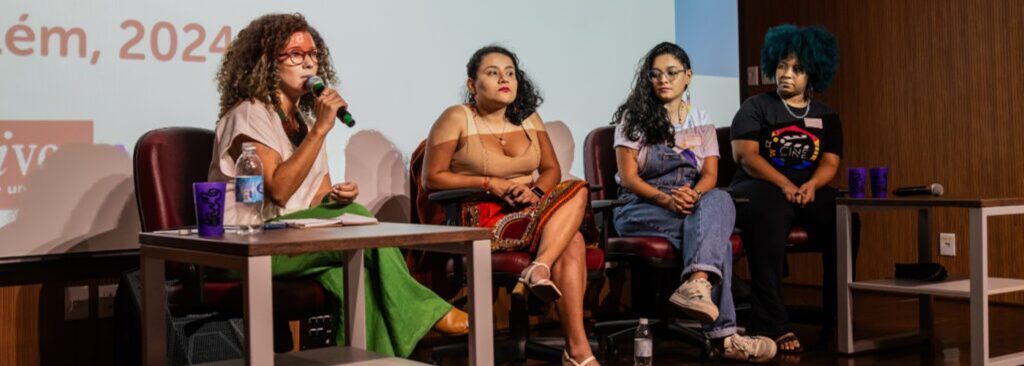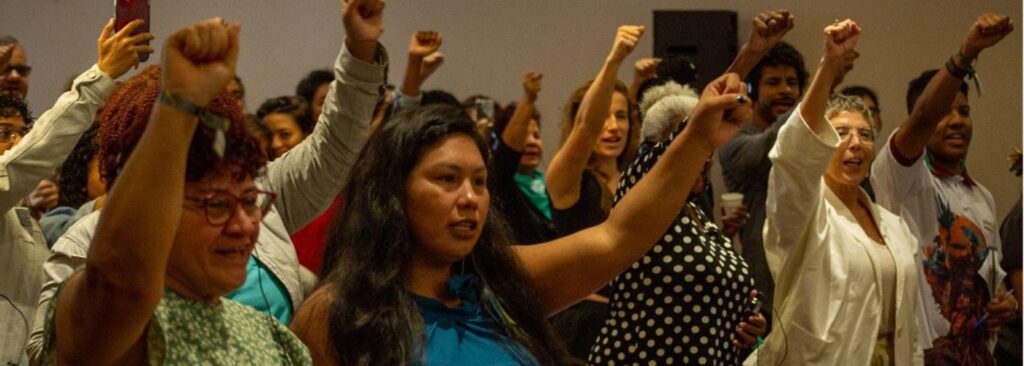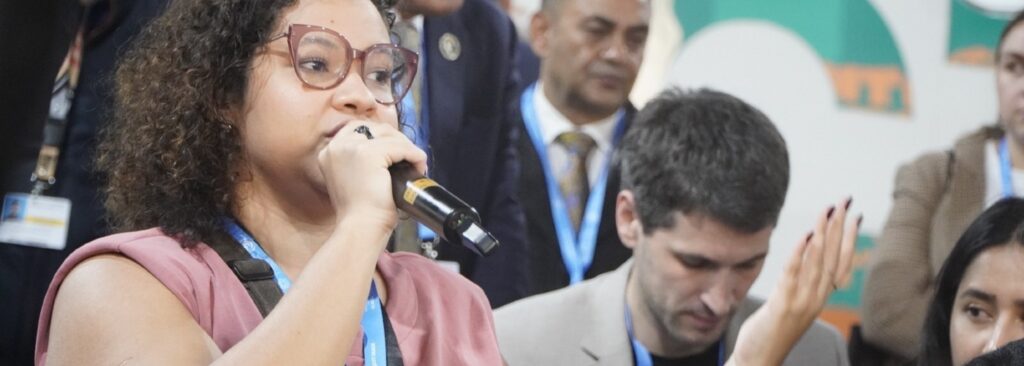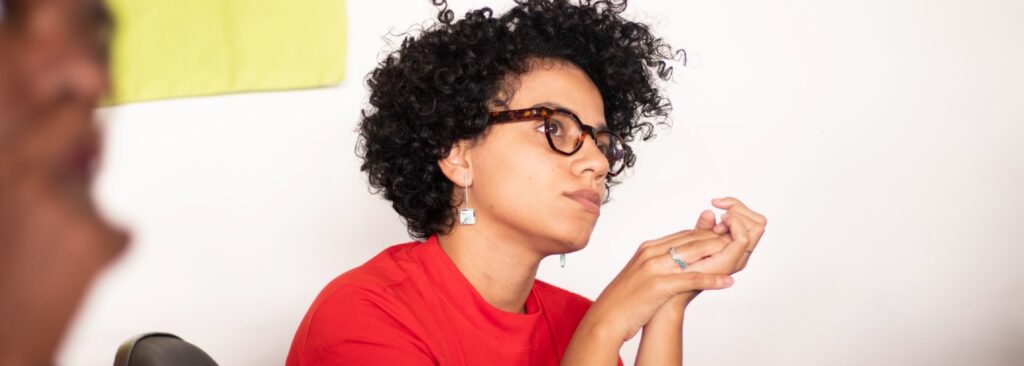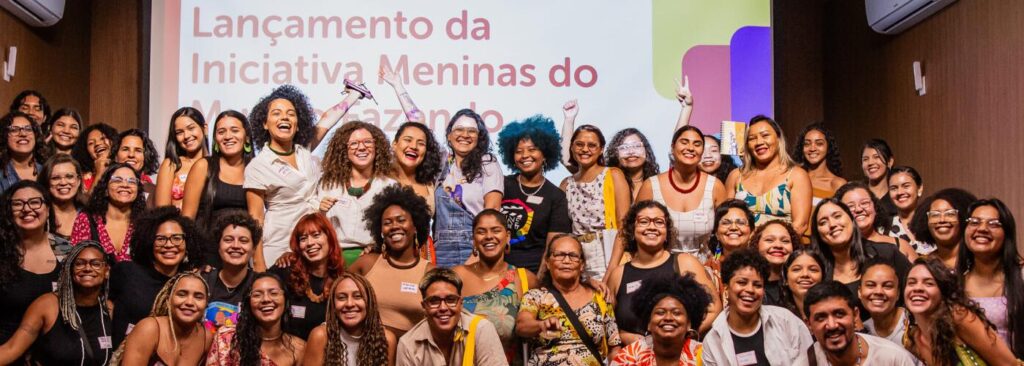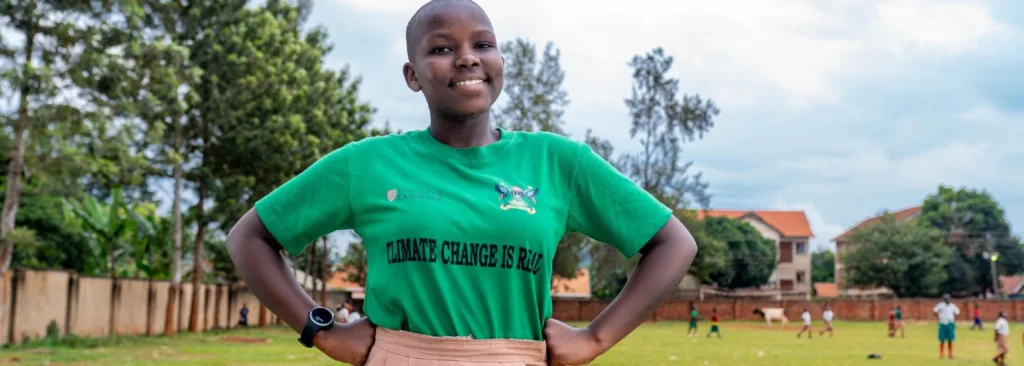This program has ended
Hivos announces we are ending the activities of our program “Global Girls Creating Change – G2C2.” G2C2 aimed to involve girls and women from territories in Brazil, Indonesia, Uganda, and Nepal in global discussions on the climate emergency. The decision to cut the program’s funding was made unilaterally by the its donor, the U.S. Department of State. Read more…
Global Girls Creating Change (G2C2) supports girl-led entrepreneurship and climate action in Brazil, Indonesia, Nepal and Uganda. The program is implemented by Hivos (lead), Restless Development, and Humanis.
Why the voice of girls is critical
Girls, in all their diversity, are on the frontlines of the climate crisis. The crisis deepens existing social and economic inequalities, making it more likely that girls have to leave school to support their families and increasing their risk of facing gender-based violence. At the same time, women and girls are rarely included in decision-making and have less access to finance, land, assets and economic opportunities.
Despite these barriers, women and girls can be powerful change agents for climate action and economic security. Youth and girl-led movements have already transformed the climate arena. And when women and girls are economically empowered, they re-invest in their families and communities. Girls have a right to engage in and benefit from climate action and economic opportunities, and to develop their skills, including in science, technology, engineering and math (STEM) where women and girls are underrepresented.
How we support girls fighting climate change
The G2C2 project has three interlinked objectives and activity areas:
- We want to support girls to develop the skills to lead inclusive climate action as entrepreneurs and activists. To achieve this, activities include girl-led evidence-building, training and skills development including on technical, STEM and career skills, mentoring, and community dialogues about gender norms.
- We support girls to voice their agenda at local, national, regional and global levels. Activities to achieve this include developing girl-led advocacy plans, operationalizing them in national networks, platforms and dialogues, media engagement, and supporting a diverse cohort of girls to engage at regional and international levels.
- We will provide grants, training and other support for girls to create and lead climate innovations and enterprises in their communities. This will be achieved through participatory co-creation processes, pitching for innovation grants, and complementary resources, tools and support.
Where
Brazil, Indonesia, Nepal, Uganda and at global level
Period
September 2023 to September 2026
Partners
Restless Development, Humanis, and local partners in each country
Donor
Secretary’s Office for Global Women’s Issues (S/GWI), U.S. Department of State
Pictured above: Nakiria Leticia – Young Climate Champion from Uganda who takes part in Restless Development’s Taking Climate Change to School Project

